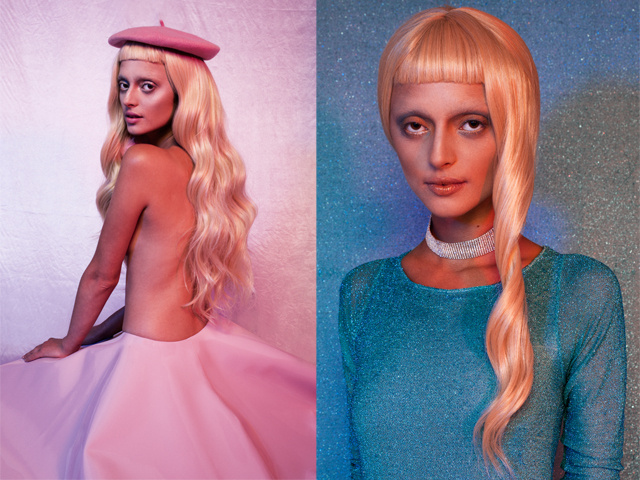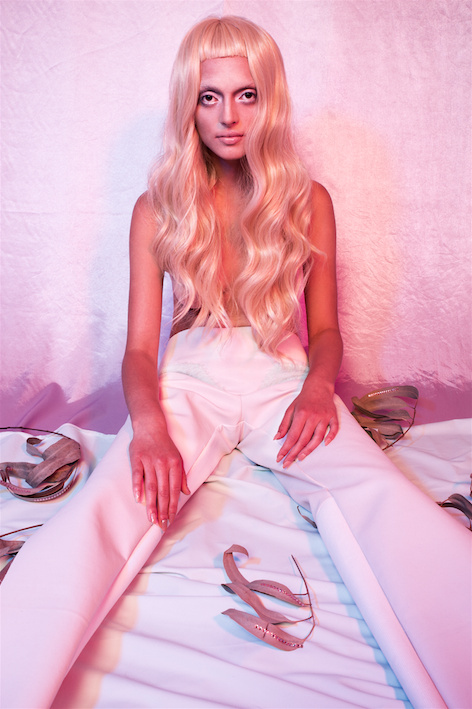
Advertisement
Carlijn Jacobs: Camp is a cultural expression where the most important thing is embracing the irony of popular culture. You'll see things that are seen as low culture and appreciate them, even if you know that doesn’t fit in with what's popular culturally. I think the psychological ideas behind high and low culture are very interesting. I actually made a Notes On Camp for 2014. In 1964, people already spoke comprehensively about camp, while the internet and the Tumblr generation aesthetics that stemmed from it were still very far away. That’s why I found it interesting to put my thoughts down about camp in 2014.Where do you see camp in the present day?
You see it passing by in lots of sub-movements where the mass culture is glorified ironically, but it can also be seen in the mainstream. For example, one of the photos [the predominantly blue one] is based on the Eurovision Song Contest. This event is often mentioned when people try to explain camp. The Song Contest is extremely popular in all layers of society. It's a massive and commercial event that is meant for the everyman, but the riches also appreciate it, which then results in high culture actually opposing its own cultural expressions. This also is an example of camp. Is this a weakness of the high culture – that they're losing their own identity?
More or less. It may also mean that you don’t dare to stand up for something you find interesting or beautiful because it wouldn’t fit your "standing". You could compare this with sweet white wine, which by the experts is often seen as a sign of underdeveloped taste, and people are to embarrassed to order it. Yet secretly everyone enjoys it.
Advertisement
The connotation of the observing spectator is always changing. The brand started off as high fashion, only it quickly became a symbol of a poor developed taste, because the masses started to wear it. Therefore, there was a time that the higher culture didn’t want to be associated with the brand. So the Burberry print can actually be mocking or satirical – you can make a statement with it. Without you having to choose a side between the mass culture and snobbish high culture, you've created something new.How did you come across this gorgeous model?
I met her about three years ago at a house party. She's from Croatia and has little to no experience. I always knew that I wanted to photograph her. I think she has a beautiful appearance with her languid eyes. It’s nice that she isn’t perfect. It's because of these imperfections that the photo is memorable. That’s the same anti-reaction that occurs when valuing camp. There needs to be something strange about it. There needs to be a kink in it. A perfect model makes the photo boring.






More of Carlijn’s work can be found at www.carlijnjacobs.com